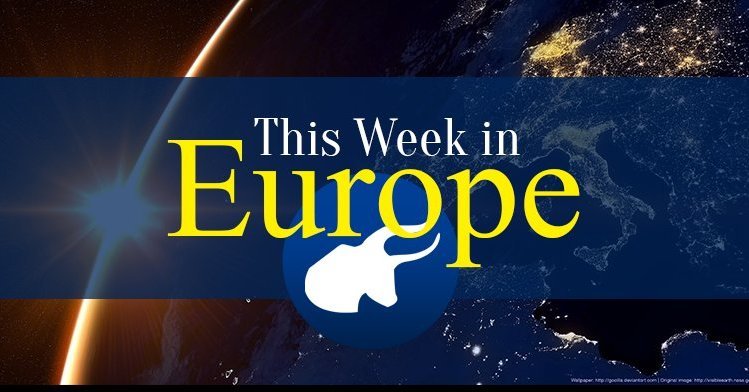Surprise pro-EU government in Moldova
This week, pro-EU group ACUM (Now) led by Maia Sandu and Andrei Năstase, formed a coalition with the Socialist Party in order to oust the Democratic Party and its leader Vladimir Plahotniuc from government. Plahotniuc, who did not hold any formal position in the former government but controlled it nevertheless, was seen as an oligarch and was criticized by civil society groups and the EU for poor administration and lack of transparency. After the inconclusive elections in February, snap elections were on the way - except the last minute deal prevented them, putting Maia Sandu as Prime Minister of Moldova on Saturday. The Constitutional Court of the country ruled that the coalition was not valid, causing concern and confusing among its ranks. A hopeful Sandu promised to clean up Moldova and to rid it of corruption and abuse of power, not to mention rekindle its relationship with the EU. The Union, the United States, and Russia all expressed support for her coalition. Protests in support of both sides are expected in the coming days.
Germany adopts controversial immigration bill
On Friday, Germany passed a package of bills which brought major changes to the country’s asylum and immigration policy. The package included the “Order Return Law”, which expands the powers of police and speeds up deportation of failed asylum seekers. The drafters aim to increase that very proportion of successful deportations - in Germany, half of the nearly 200.000 deportations planned since 2015 failed or were not carried out. At the same time, the new laws improve access to Germany’s labor market for skilled migrants, especially those who speak German. The laws were fiercely debated in the parliament, with the Greens and the far-left Die Linke stressing that they were an infringement on asylum seekers’ rights. On the other side, Interior Minister and CSU leader Horst Seehofer insisted that the new legislation was needed. At the same time, the SPD is scrambling to define its own position on immigration.
Anti-Brexit Change UK party splits
In the aftermath of a disastrous showing at the European elections, Britain’s anti-Brexit party Change UK, founded just three months ago, has split. The party, made up of 11 centrist MPs who came from both Labour and the Tories, has separated into two groups, with five remaining MPs and six going independent. Those who left expressed disappointment but stressed the need for a sensible mainstream center and for a People’s Vote. Vince Cable, leader of Liberal Democrats, one of the parties who scored big in the last elections and also opposed Brexit, said that the door of his party is open to the former Change UK MPs. Meanwhile, U.S. carmaker Ford confirmed on Thursday that it plans to close its engine plant in South Wales in September 2020 - without making express reference to Brexit but in continuation of past warnings that this may happen if the British vote to leave the EU.
Macron’s popularity on the rise
With 40 % approval rating in May according to a Harris Interactive poll, French president Emmanuel Macron is returning to levels not seen in 9 months. His troubled period started last July when one of his bodyguards was filmed beating protesters on May Day and when his popular environment minister, Nicolas Hulot, resigned after complaining of a lack of commitment to environmental policy. The final drop was the anti-government Yellow Jackets movement and its weekly protests. After all that, Macron kicked off a listening tour in order to connect to people. PM Edouard Philippe is seeing similar recovery rates in his own approval - especially among supporters of the Socialist Party. Macron’s support, however, still overwhelmingly comes from the center and center-right.
Czech PM faces massive protests
This Tuesday, tens of thousands of people protested in Prague, demanding the resignation of Czech PM Andrej Babis and his new justice minister. The protest comes as the largest manifestation since Babis replaced Jan Kněžínek with Marie Benešová as head of the justice ministry, one day after Czech police recommended the prime minister be charged with subsidy fraud involving €2 million in EU funds. It is believed that the new minister, an ally of Babis, would only suppress the case, saving the PM from 5 to 10 years in prison. The 120.000-strong crowd also demanded that Babis return the funds that a preliminary European Commission audit found his Agrofert conglomerate had received illegitimately. Babis leads a minority government that survives thanks to the Czech Communists in the face of the center-right and center-left parties in the country, CSSD, and ODS.
Commission launches disciplinary process against Italy
Six months ago, the Italian government promised to comply with the EU spending rules - but it hasn’t. In response, the European Commission began the process for the EDP, the excessive deficit procedure, which could have Italy fined with €3.5 billion. “The debt criterion is currently not respected,” said Pierre Moscovici, the Commission’s chief for economic and financial affairs, regarding Italy’s rising public debt. EU’s spending rules confine the budget deficits of member states to 3% of GDP and keep national public debt under 60% of the GDP. Italy is set to reach a 3.5% deficit and a public debt of 135%.


Follow the comments: |
|
